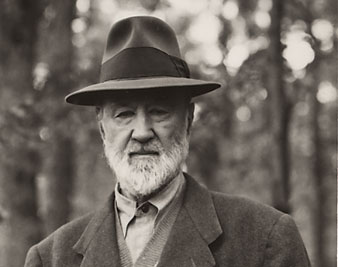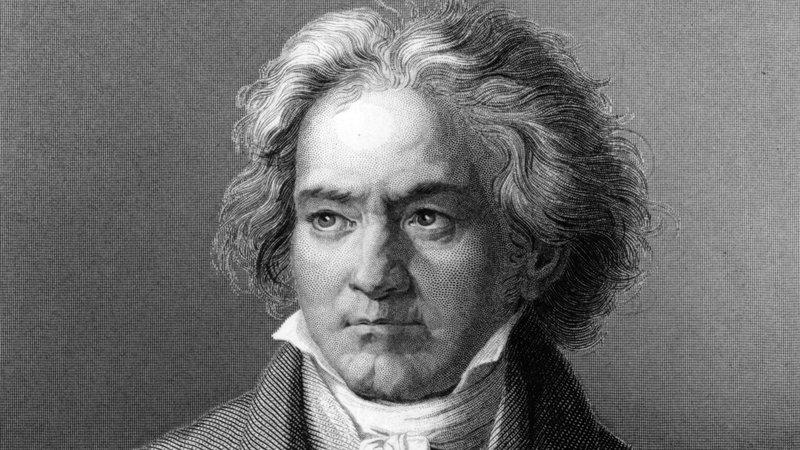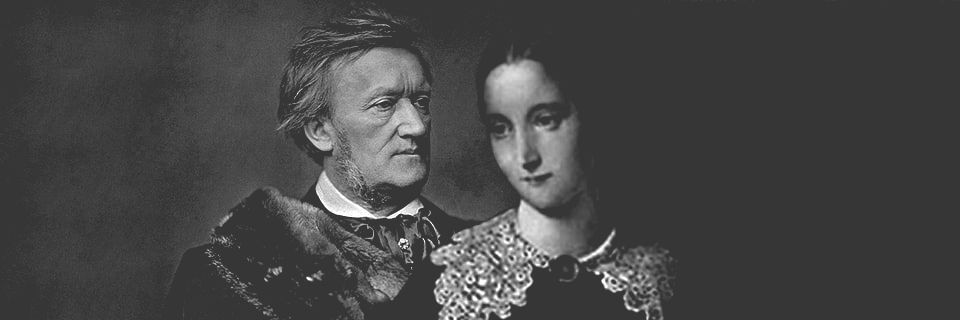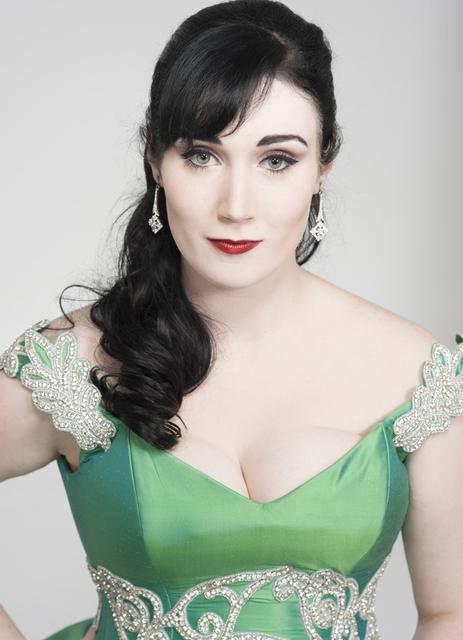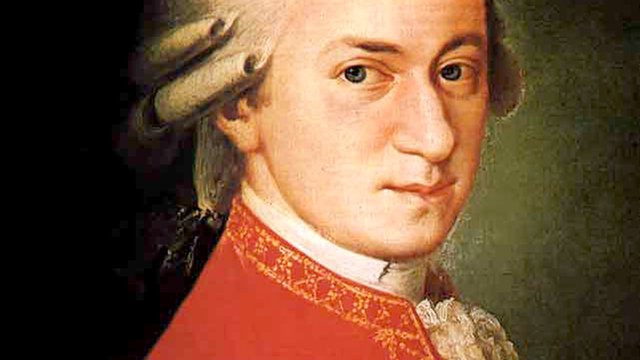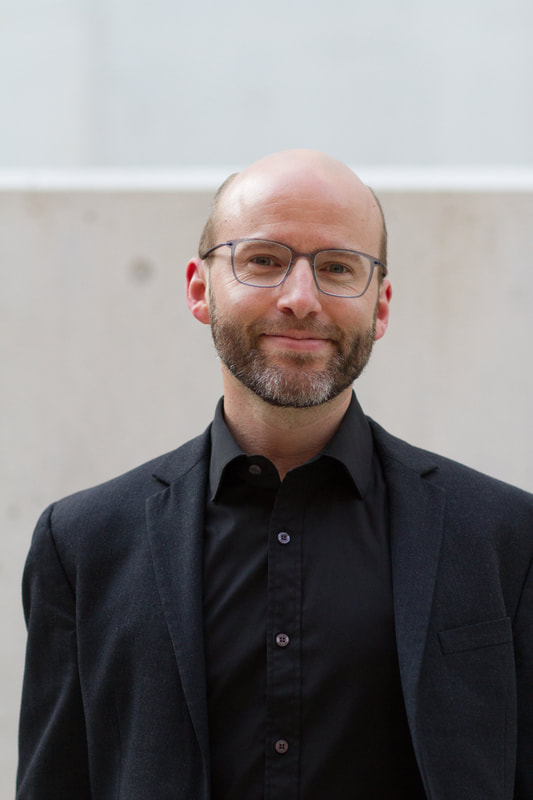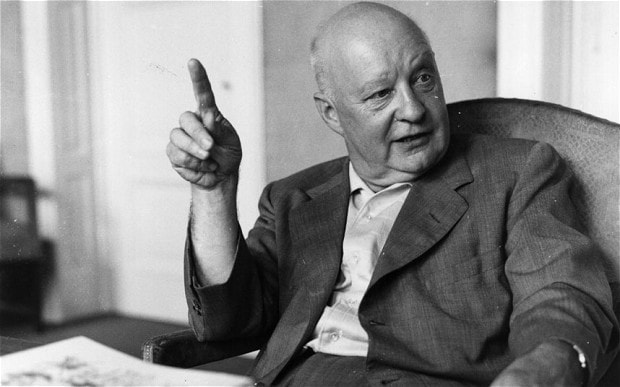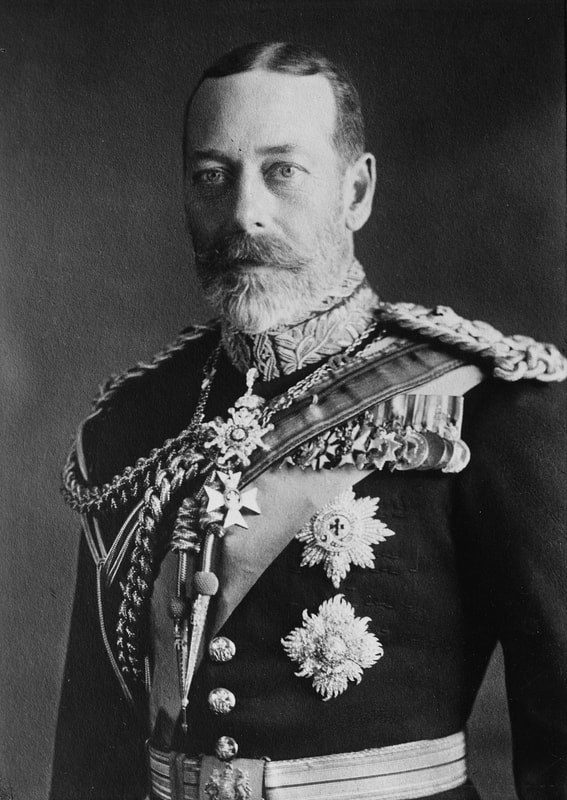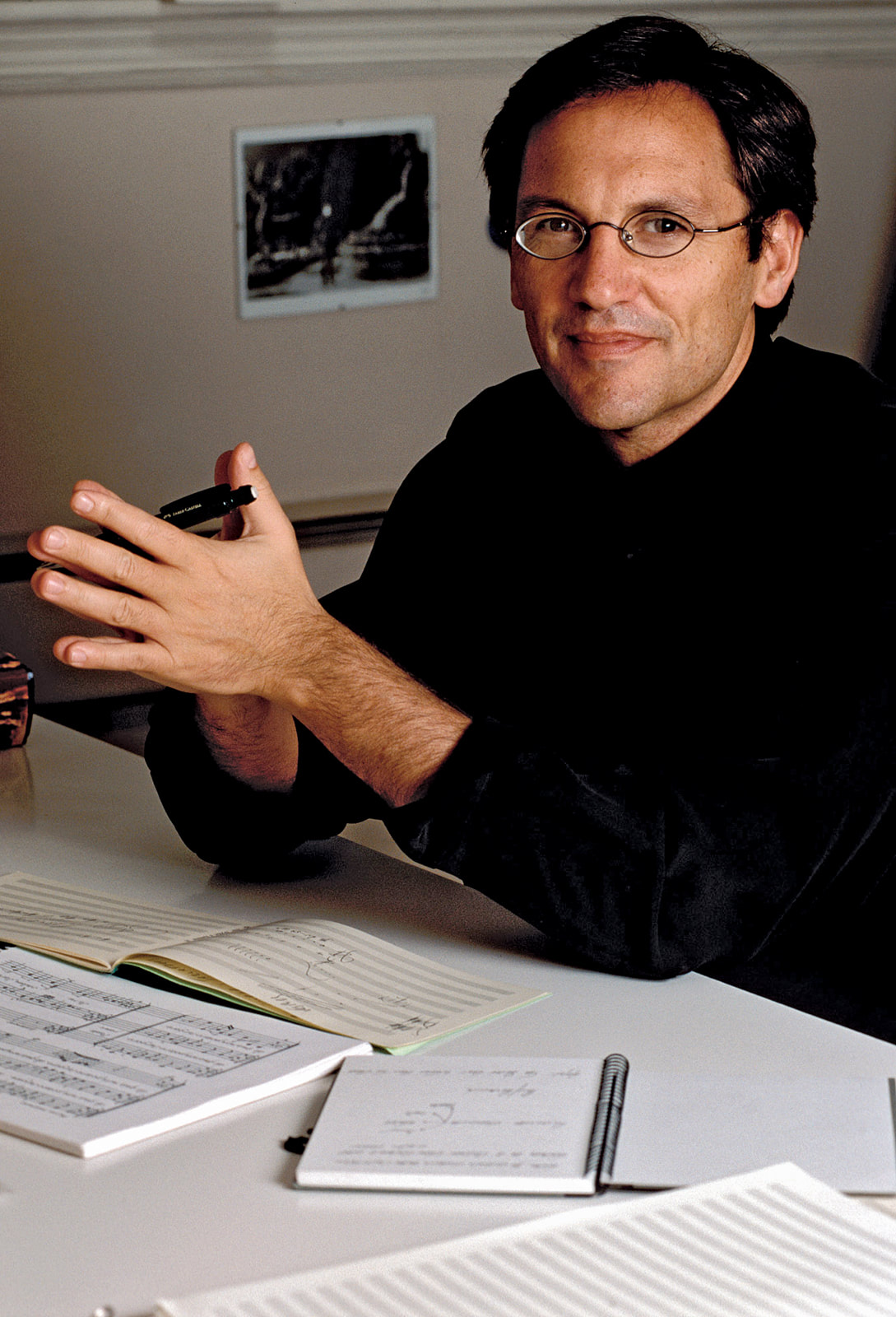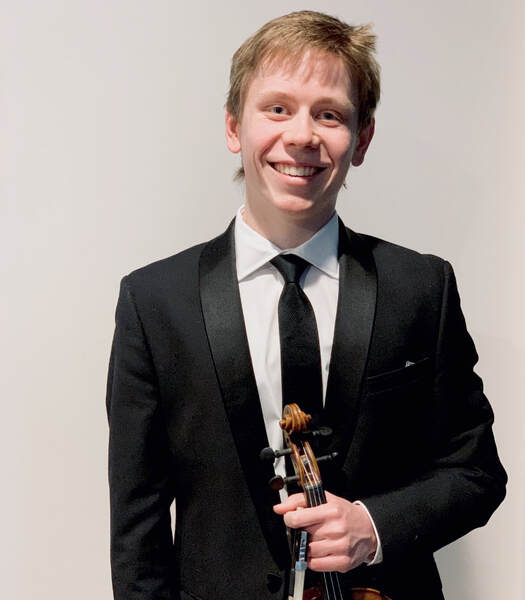Sunday March 8, 2020 - The Man Who Cried
|
Sarah Butler, trumpet
Monika Koerner, flute Laura Cliff, flute Ev Ramadan, flute Paul Dean, clarinet William Huxtable, violin Harry Egerton, violin Scarlett Gallery, violin Sola Hughes, violin Tobi Breider, viola Daniel You , viola Jeremy Egerton, viola Trish O’Brien, cello Michael Gibson, cello Phoebe Russell, double bass |
Charles Ives on his composition, “The Unanswered Question”
"The strings play ppp throughout with no change in tempo. They are to represent “The Silence of the Druids–Who Know, See, and Hear Nothing.” The trumpet intones “The Perennial Question of Existence,” and states it in the same tone of voice each time. But the hunt for “The Invisible Answer” undertaken by the flutes and other human beings, becomes gradually more active, faster and lower through an animando to a con fuoco. This part need not be played in the exact time position indicated. It is played in somewhat of an impromptu way; if there be no conductor, one of the flute players may direct their playing. “The Fighting Answerers,” as the time goes on, and after a “secret conference,” seem to realize a futility, and begin to mock “The Question”–the strife is over for the moment. After they disappear, “The Question” is asked for the last time, and “The Silences are heard beyond in Undisturbed Solitude.” (No applause, segue to Beethoven Trio) |
|
Beethoven String Trio No. 5 in C minor, Op. 9 No. 3
Each of the trios is composed as a serious concert work in sonata form (4 movements), and precede his first Opus 18 String Quartets. The Opus 9 No 3 is composed in C minor, with dynamic effects and sharp contrasts in rhythm providing the same sense of anxiety and passion as his 5th Symphony and three of his piano sonatas. Click on the pdf score link below to download a score. |
| beethoven_opus_9_no_3_score.pdf |
|
Wagner - Wesendonck Lieder WWV91
The Wesendonck Lieder were conceived as studies for his writing of the opera Tristan & Isolde, using poems by Mathilde Wesendonck, the wife of one of Wagner’s patrons. Wagner and his wife Minna lived together in a small cottage on the Wesendonck estate for some time, and it has been speculated that Wagner was at least infatuated by Mathilde Wesendonck, if not actually involved in an affair. The Wesendonck Lieder and Siegfried Idyll remain two of Wagner’s most popularly performed works outside the operatic form. Originally composed for female voice and piano, the Wesendonck Lieder have been arranged in various forms: 1886 - Orchestrated for large orchestra by Felix Mottl 1972 - Reorchestration by Vieri Tosatti 1976 - Chamber version by Hans Werner Henze 2012 - Soprano and String Sexet, Arr Rudolf Leopold 2013 - for soprano, clarinet, cello and piano by Alain Bonardi, including instrumental interludes with oriental resonant percussions. 2013 - reimagined as Wesendonck Sonata, for voice, viola or cello, and piano by Jeffrey Ching 2015 - Soprano and string quartet Christophe Looten Today’s performance will be of the 2012 Ruldolf Leopold arrangement, for soprano and string sextet. |
Kathryn Radcliffe, mezzo soprano
William Huxtable, violin Harry Egerton, violin* Tobias Breider, viola Daniel You, viola* Trish O'Brien, cello Michael Gibson, cello* *= mentee positions Soprano Kathryn Radcliffe has won many major awards including the Opera Foundation Australia Vienna State Opera Award, the Herald Sun Aria First Prize, 3MBS Victorian Young Performer of the Year Award, American Australian Association Dame Joan Sutherland Fund, the Joan Sutherland and Richard Bonynge Bel Canto Award, and many more. She completed her Bachelor with first class Honours at the VCA in 2009, and since then has performed in many solo roles with Opera Australia, Victorian Opera and Vienna State Opera.
We are delighted that she is able to join us for this performance. |
|
Der Engel
The Angel Early in my days of childhood, Angels, I oft heard it said, Left the blissful joys of Heaven For the light of Earth instead. When a heart fills with dread sorrow, Shuns the world and disappears, When its wish to bleed in silence Dissolves into a flood of tears, When its prayer at its most fervent Begs for nothing but release, Then the angel will come down to Raise it up to Heaven’s peace. Once an angel flew down to me; He, on wings that shimmer, soft, Leads me far away from suffering, Gently bears my soul aloft. Stehe still! Be still! Hurrying, scurrying wheel of time Marking out eternity; Glowing spheres in distant space Circling us with gravity; All sempiternal generation, cease! Enough of that - let me know peace! Desist, now, creative powers; The Word creating without end. Hold back your breath, calm your desires, Be silent just one moment’s length. Throbbing pulse, restrain your beat To end desire’s endless day So I, in sweet oblivion, May take full measure of my joy; See bliss within another’s eyes, Immerse my soul within another’s, Another’s being that mirrors mine; An intimation that hope’s goal is near. Then are lips hushed in wondrous silence, The drive for newer hopes is stilled, We see Eternity in Nature, The search for answers is fulfilled. Im Treibhaus In the Hothouse Crown of leaves arching high, Canopies of emerald, Children, come from distant parts, What is it that breaks your hearts? Silently your branches bow, Tracing symbols in the air, The mute witness to your suffering, A sweet fragrance rises there. Yearning with desire You stretch your arms out wide And, captive to delusion, hug Emptiness, the barren void. I know that well, poor plant, It is one fate we share; Though glowing light surrounds us, Our homeland lies elsewhere. And as, happily, the sun deserts The empty light of day, He who knows real anguish Finds, in the dark, a silent hideaway. The silence grows, a rustling web Fills the darkened space with dread: Along the edges of the leaves I see heavy droplets quiver. |
Schmerzen
Torment Sun, you weep every evening Till your eyes are red and sore As, submerging in the mirrored sea, You pass, too early, through death’s door. But, you rise again in former splendour, Glorious in a world that’s dark, Newly wakened in the morning; A hero who has made his mark. Ah, how could I then complain, Feel such heaviness in my heart, When the sun itself knows anguish, When the sun itself must perish. And if death alone gives birth to life, And only torment can bring joy, How grateful am I for such torment As Nature does in me deploy. Träume Dreams What wondrous dreams are these Holding my mind in thrall, That they, like insubstantial foam, Don’t barren emptiness recall. Dreams that flower with greater beauty With every hour of every day, And blissful intimations of heaven Throughout my inner self convey. Dreams that like the rays of glory Run through me to the very core, Creating a picture there, effacing All but one, for evermore. Dreams as when the spring-time sun Frees snowbound flowers with a kiss So that the new day welcomes them With unimaginable bliss, So they may grow and bloom, Dreaming exude their scent, Their glow gently fading on your breast Until their life is spent. |
|
Daniel de Borah, piano
William Huxtable, violin Harry Egerton, violin Daniel You, viola Trish O'Brien, cello Phoebe Russell, double bass |
Mozart piano Concerto No 12 in A major, K414
(arranged for piano and strings by the composer)
This concerto (one of the 27 Mozart piano concerti) was written simultaneously with the K413 Bb major and the K415 C major piano concertos, the six string quartets dedicated to Haydn, and the early stages of The Marriage of Figaro. It is inconceivable for mere mortals to explain how one human brain could have worked through this list of pieces all at once, but it was a truly remarkable period of composition in Mozart’s life, even for his unbelievably high standards. The A major concerto, was one of only 6 of the concerti published in his lifetime, a work of a great mature master, harmonically and melodically linked to the Marriage of Figaro in many ways. The broad sweep of the first theme, is to the listener, like a breath of the freshest mountain air, and sets up the work with pulsing energy, and unfathomable beauty. Mozart was very fond of this concerto, and even published two sets of cadenzas (Daniel will perform a combination of the two sets today), and along with K413, and K415 quickly published versions with single strings and no winds. (as heard in today’s performance) highlighting not just his fondness for these works but also his attempt to make money from them. (this failed fairly dismally) The A major concerto works particularly well in the paired down version, as the intimacy of the music and the dialogue between the voices is brilliantly suited to the chamber setting. When one considers the other music sitting on the desk with this work, it might be easy to assume that it would contain a sense of frivolity or lightness, but at approximately 26 minutes, this is a major piece in the great masters’ output, and is a timely reminder of the depth of Mozart’s intensely creative and imaginative mind. I urge listeners to sit back, allow the music to flow through you, and at a time of such upheaval in the world, sit back and marvel at the power and depth of human spirit. Daniel de Borah, pianist |
|
Paul Hindemith (1895 - 1963) - Trauermusik for Viola and Strings
The great German composer and violist Paul Hindemith arrived in London on the 19th of January, 1936 to find a country saddened by the illness of their King, George V. On the 22nd he was to give the London premiere of his newly minted viola concerto, Der Schwanendreher, however, the King passed away on the 20th and the concert was rescheduled as a memorial concert. The slightly jolly, jaunty and folk style of the originally programmed viola concerto was thought of as inappropriate for such an occasion, and an alternate piece was sort. When nothing came quickly to the minds of the orchestral leaders, Hindemith volunteered to compose a new work for himself (as soloist) and strings for the program. Composed over a period of 6 hours, and with copyists standing at the ready, Trauermusik was born at the concert on the 22nd of January. Few composers could have achieved this feat, a fact not lost on Hindemith himself. And he also suspected that the work would outlive its original reason for being. The piece is composed in four short movements (he wrote that he would hardly have time for a voyage of discovery) which unfolds in a through composed piece of various moods. The work ends with the Bach Chorale "Für deinen Thron tret ich hiermit" (Thus I stand before your throne) which he was surprised to find out that English schoolchildren were taught as “All people that on Earth Do Dwell”. Hindemith composed some 12 pieces that featured the viola, his instrument, but none have found such a place in the repertoire and the hearts and minds of musicians and music lovers alike, as does this miraculous short outpouring of grief. |
|
Monika Koerner, flute
Paul Dean, clarinet William Huxtable, violin Tobias Breider, viola Trish O'Brien, cello Phoebe Russell, double bass |
Osvaldo Golijov (1960 - ) Lullaby and Doina
for flute, clarinet, violin, viola, cello and double bass Music from the film “The Man Who Cried” Osvaldo Golijov is one of the most revered and performed living composers in the world today. He was born in Argentina, in an Eastern European Jewish household where he was surrounded by music from many styles including Klezmer, classical chamber music, Jewish Liturgical music and the tangos of Piazzolla. This fertile ground gave birth to one of the most imaginative and eclectic compositional minds the world has ever seen. Ever since he started working closely with the St Lawrence and the Kronos Quartet in the 1990s his music and fame has spread like wildfire. He burst onto the European scene with his choral work, St Mark’s Passion, in commemoration of the 250th death of JS Bach, and ever since has written works for the world’s great ensembles and orchestras. Golijov composed Lullaby and Doina for the Boston Symphony Chamber players in 2001. The composer writes about the work: “This piece starts with a set of variations of a Yiddish lullaby that I composed for sally potter’s film The Man Who Cried set to function well in counterpoint to another important music theme in the soundtrack: Bizet’s Aria “Je Crois Entendre Encore” from The Pearl Fishers. In her film Sally explores the fate of Jews and Gypsies in Europe during the tragic mid-years of the 20th century, through the love story between a Jewish young woman and a gypsy young man. The lullaby metamorphoses into a dense and dark doina (a gypsy slow, rubato genre) featuring the lowest string of the viola. The piece ends in a fast gallop boasting a theme that I stole from my friends of the wild Gyspy band Taraf de Haidouks." |
|
Our guest lead violinist for this program is a very special young man appearing in a mentorship position, William Huxtable.
For William Huxtable, a founding member and violinist of the Partridge String Quartet (PSQ), he has always had an interest and enjoyed performing in a diverse range of musical contexts. He is a past recipient of the Delano Music Scholarship at the University of Western Australia as a student of Paul Wright and has studied at the Australian National Academy of Music with Dr. Robin Wilson. He has participated in masterclasses with violinists Alina Ibragimova, Tasmin Little and concertmasters Noah-Bendix Balgley (Berlin Philharmonic) and Roman Simovic (London Symphony Orchestra). Growing up in Perth, music has always been prevalent in William Huxtable’s life when he began violin at the age of 3. Since then, he has performed as a chamber and orchestral musician around Australia. As part of the PSQ he has performed at the Musica Viva Festival in Sydney and at the BANFF Centre for Arts and Creativity. In 2019 the PSQ were joint winners of the Queensland International Chamber Music Competition and performed three concerts at the Port Fairy Spring Music Festival. Earlier this year, the PSQ performed at the inaugural Bendigo Chamber music festival where they collaborated with Soprano Merlyn Quaife and members of the Chamber Orchestra of Europe Dane Roberts and Matthew Wilkie. During his time at ANAM, he has had the privilege to perform alongside the Australian World Orchestra under renowned conductor Simone Young and performed at the Huntington Estate Festival with world-renowned musicians. Additionally, William has performed on radio on multiple occasions particularly on 3mbs Live Music Melbourne. As an avid fan of french music, it was a highlight to perform Debussy’s Violin Sonata live on ABC Classic with pianist Sine Winther in 2018. His chamber music performances at ANAM and at the Melbourne Recital Centre also include performing with musicians from the Berlin Philharmonic Matthew Mcdonald and Stefan Dohr, world-renowned pianists Imogen Cooper and Roy Howat and ANAM faculty Howard Penny and Timothy Young. 2019 proved to be a busy and exciting year for William. William was selected as an ‘Emerging Artist’ of the Australian Chamber Orchestra (ACO) and has toured and performed with ACO musicians such as Pekka Kuusisto and Helena Rathbone on several occasions throughout the year. He has toured with ANAM to Perth in collaboration with the West Australian Symphony Orchestra and performed the Schubert Octet with Israeli violinist and concertmaster Gregory Ahss (Camerata Salzburg) at ANAM. William has also led projects as concertmaster of the ANAM orchestra including Bruckner’s 4th Symphony conducted by Nicholas Carter, Bach’s B minor Mass conducted by Benjamin Bayl in collaboration with Voces8 and Mozart’s horn concerto with Principal horn of the Sydney Symphony Orchestra Ben Jacks. At ANAM he also performed Stravinsky’s ‘A Soldiers Tale’ conducted by Fabian Russell. After graduating from ANAM at the end of 2019, William has some exciting engagements ahead for 2020. In late February, the PSQ will perform concerts at the music conservatoriums in Coffs Harbour and Grafton NSW. Shortly after this they will play an all Australian program at the MPavilion in Melbourne and then perform alongside Ensemble Golden Tree in a concert titled ‘Not Beethoven’. In March, he will perform with Ensemble Q in their Sunday Concert Series in a Mentorship role. During Easter he will travel down to Bermagui to play in the Four Winds festival. He will also join Wilma and Friends for a concert performing Schumann’s Piano Quintet in late may. Joining Ensemble Q again in May, he will play the Soldier’s Tale Trio at Tempo Rubato in Melbourne. William plays on a 2016 Yanbing Chen Violin |
An Absolutely Ordinary Rainbow
by Les Murray
The word goes round Repins,
the murmur goes round Lorenzinis,
at Tattersalls, men look up from sheets of numbers,
the Stock Exchange scribblers forget the chalk in their hands
and men with bread in their pockets leave the Greek Club:
There's a fellow crying in Martin Place. They can't stop him.
The traffic in George Street is banked up for half a mile
and drained of motion. The crowds are edgy with talk
and more crowds come hurrying. Many run in the back streets
which minutes ago were busy main streets, pointing:
There's a fellow weeping down there. No one can stop him.
The man we surround, the man no one approaches
simply weeps, and does not cover it, weeps
not like a child, not like the wind, like a man
and does not declaim it, nor beat his breast, nor even
sob very loudly—yet the dignity of his weeping
holds us back from his space, the hollow he makes about him
in the midday light, in his pentagram of sorrow,
and uniforms back in the crowd who tried to seize him
stare out at him, and feel, with amazement, their minds
longing for tears as children for a rainbow.
Some will say, in the years to come, a halo
or force stood around him. There is no such thing.
Some will say they were shocked and would have stopped him
but they will not have been there. The fiercest manhood,
the toughest reserve, the slickest wit amongst us
trembles with silence, and burns with unexpected
judgements of peace. Some in the concourse scream
who thought themselves happy. Only the smallest children
and such as look out of Paradise come near him
and sit at his feet, with dogs and dusty pigeons.
Ridiculous, says a man near me, and stops
his mouth with his hands, as if it uttered vomit--
and I see a woman, shining, stretch her hand
and shake as she receives the gift of weeping;
as many as follow her also receive it
and many weep for sheer acceptance, and more
refuse to weep for fear of all acceptance,
but the weeping man, like the earth, requires nothing,
the man who weeps ignores us, and cries out
of his writhen face and ordinary body
not words, but grief, not messages, but sorrow,
hard as the earth, sheer, present as the sea--
and when he stops, he simply walks between us
mopping his face with the dignity of one
man who has wept, and now has finished weeping.
Evading believers, he hurries off down Pitt Street.
from
The Weatherboard Cathedral, 1969
by Les Murray
The word goes round Repins,
the murmur goes round Lorenzinis,
at Tattersalls, men look up from sheets of numbers,
the Stock Exchange scribblers forget the chalk in their hands
and men with bread in their pockets leave the Greek Club:
There's a fellow crying in Martin Place. They can't stop him.
The traffic in George Street is banked up for half a mile
and drained of motion. The crowds are edgy with talk
and more crowds come hurrying. Many run in the back streets
which minutes ago were busy main streets, pointing:
There's a fellow weeping down there. No one can stop him.
The man we surround, the man no one approaches
simply weeps, and does not cover it, weeps
not like a child, not like the wind, like a man
and does not declaim it, nor beat his breast, nor even
sob very loudly—yet the dignity of his weeping
holds us back from his space, the hollow he makes about him
in the midday light, in his pentagram of sorrow,
and uniforms back in the crowd who tried to seize him
stare out at him, and feel, with amazement, their minds
longing for tears as children for a rainbow.
Some will say, in the years to come, a halo
or force stood around him. There is no such thing.
Some will say they were shocked and would have stopped him
but they will not have been there. The fiercest manhood,
the toughest reserve, the slickest wit amongst us
trembles with silence, and burns with unexpected
judgements of peace. Some in the concourse scream
who thought themselves happy. Only the smallest children
and such as look out of Paradise come near him
and sit at his feet, with dogs and dusty pigeons.
Ridiculous, says a man near me, and stops
his mouth with his hands, as if it uttered vomit--
and I see a woman, shining, stretch her hand
and shake as she receives the gift of weeping;
as many as follow her also receive it
and many weep for sheer acceptance, and more
refuse to weep for fear of all acceptance,
but the weeping man, like the earth, requires nothing,
the man who weeps ignores us, and cries out
of his writhen face and ordinary body
not words, but grief, not messages, but sorrow,
hard as the earth, sheer, present as the sea--
and when he stops, he simply walks between us
mopping his face with the dignity of one
man who has wept, and now has finished weeping.
Evading believers, he hurries off down Pitt Street.
from
The Weatherboard Cathedral, 1969

